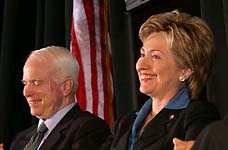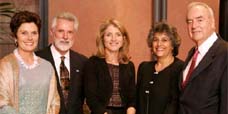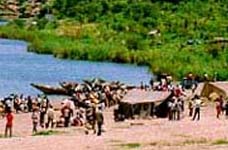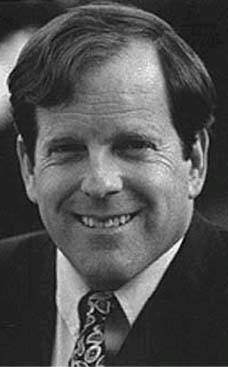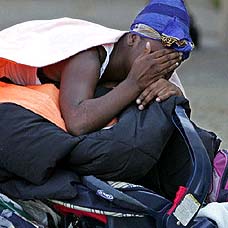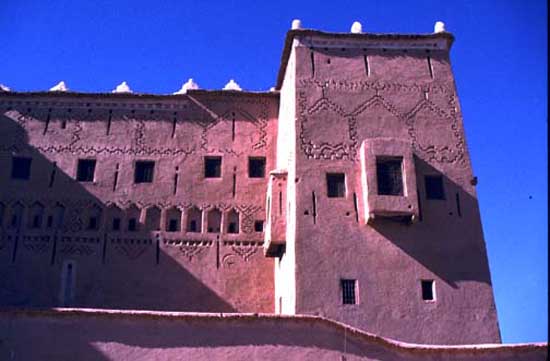
The Initiative is already dedicated to building local centers for vulnerable groups, which help them attain self-reliance through skills-building. In this framework, community development planning and training centers should be built in the targeted areas. These centers are managed by community members and assist local people in designing and implementing projects.
RPCV Jason Ben-Mier says Morocco’s National Initiative for Human Development can create critical socio-economic and political benefits for the Moroccan people
Morocco’s ”National Initiative”: Its importance and challenges
Posted: 09-11-2005 , 10:08 GMT
By Jason Ben-Meir*
The successful implementation of Morocco’s National Initiative for Human Development can create critical socio-economic and political benefits for the Moroccan people, and be an important example for the Middle East, Africa and beyond. The Initiative is a perennial development “mobilization” launched in May 2005 by Morocco's King Mohammed VI. MoroccoIt is part of a broader plan of social reforms that have taken place since the King’s ascendancy to the throne in 1999. The Initiative was in part founded on the recognition that poverty conditions allow extremism to exist. The Initiative also recognizes that free trade (which Morocco has with the United States, Turkey and others) can seriously challenge traditional income sources and families if new opportunities are not created (as was particularly seen in rural Mexico with NAFTA).
The Initiative initially targets 5 million people (the majority in rural areas) and has a budget of $1.1 billion through 2010 (20 percent of which is contributed from abroad). It is dedicated to building Morocco’s infrastructure (potable water, electricity and roads), creating employment and income-generating activities and providing social services for people in most need (at-risk youth and women, the homeless and the elderly). The Initiative is in its first phase and a number of ground-breakings for projects have already taken place.
The international community has a lot to gain by supporting Morocco’s self-declared national project. A successful Initiative can serve as a model that will inspire other nations in the region to embark on their own ambitious development campaigns, which could generate critical national and international benefits. There are commitments of financial support for the Initiative from Belgium, France, Germany, Kuwait, Saudi Arabia, the United Arab Emirates, the United States (through the Millennium Challenge Account), and from international organizations.
To be successful, however, the Initiative faces an enormous challenge: to catalyze dialogue among communities, government and NGOs across entire areas of Morocco in order for them to create action plans based on local priorities and build the necessary partnerships to implement and manage projects. The success of the Initiative (and sustainable development in general) rests on this effort because through the process communities develop a sense of ownership of projects that meet their important needs.
Inclusive dialogue in each village and neighborhood in the targeted areas should be facilitated by men and women who are trained in facilitating interactive activities that draw out information and ideas from the participants. In this way, the parties also enhance their ability to make informed decisions. The facilitators are particularly important in the beginning stages of the process. They help to organize meetings, manage conflicts and develop consensus. Schoolteachers, government technicians (such as in health and agriculture), politicians, non-government personnel, community members and others can be effective facilitators.
Training people in facilitation throughout the project area will give the Initiative the reach it needs to engage people in the process from community to community. Rural schoolteachers are an obvious group to start with because they are dispersed throughout the country. They are typically very recent university graduates who were raised in cities and they want to make a positive difference in the communities they live and work. The National Strategy Committee, as a coordinator of the many actors that implement the Initiative’s programs, should set up a training branch and apply and coach others in participation methods and transfer them to the actors.
Training in facilitation is most effective when it is done in real situations where trainees can work closely with communities to apply activities that help them plan development (activities such as Community Mapping, Pairwise Ranking and many others that have worked well in Morocco and around the world). The communities that participate in the training also greatly benefit from the experience, which is not the case when trainings are done off-site. Developing community planning activities in Morocco should also be encouraged.
The Initiative is already dedicated to building local centers for vulnerable groups, which help them attain self-reliance through skills-building. In this framework, community development planning and training centers should be built in the targeted areas. These centers are managed by community members and assist local people in designing and implementing projects. They also provide the transfer of skills in modern agriculture, health, handy crafts, management and other areas identified by the local population. Centers are a local resource that can play a significant role in enabling the Initiative to succeed as a long-term project and help achieve the ambitious sustainable development goals.
Morocco should be recognized for its bold plan. Clearly, the commitment of the King of Morocco and the government to the success of the Initiative is very serious and strong. The stakes are high for the nation, and the international community should do all it can to support Morocco’s effort to confront realities and be a critical example for the region and world.
* Jason Ben-Meir is president of the High Atlas Foundation (www.highatlasfoundation.org), a non profit organization founded by former Peace Corps Volunteers who served in Morocco and that promotes community development in that country.
© 2005 Al Bawaba (www.albawaba.com)
